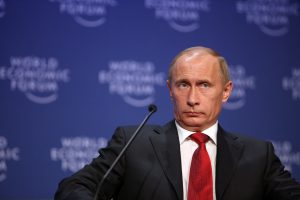Three questions now remain unanswered. The first is whether this ‘12-day war’ will have transformed Donald Trump or whether it will prove to be nothing more than an intermission for him.
He has finally toughened his stance on Vladimir Putin. He has softened his tone towards the Atlantic Alliance and its European partners. He has even said he is open to supplying missile defence shields to Ukraine. At times, like all his post-war predecessors, the most unpredictable of American presidents seems to be positioning himself as the leader of Western democracies, but he must take his isolationist base into account and still wants to make Europe bend on trade issues. It remains to be seen which Trump will prevail, and we have no idea what Benjamin Netanyahu will decide.
After defeating all of Iran’s regional proxies and winning a war he started on his own, he can either choose to continue governing with the far right or form a new coalition with the centre-right and the left.
In the first scenario, he would continue the ethnic cleansing underway in the West Bank and Gaza, move towards annexing the occupied territories, distance himself from any prospect of rapprochement with Saudi Arabia and undoubtedly face serious tensions with the White House, which would prefer to see a peaceful Middle East.
By choosing the second option, he would accept a ceasefire in Gaza, negotiate its governance with the Palestinians and Arab countries, secure the return of hostages, give himself the chance to win the next elections and ultimately make people forget the scale of the war crimes he has committed since 7 October.
Logic would dictate that he choose this option, but we do not know his mind, just we do not know the true extent of the damage caused by the bombing of Iranian nuclear sites. According to Donald Trump, not a thing remains of the facility. According to Ali Khamenei, his centrifuges suffered only a few mosquito bites. Both are lying, of course, because lying is a weapon of war that must be used to deceive the enemy, to turn defeat into a mere setback or success into a total victory.
In war, lying is the rule, but the truth is that Iran still has the scientists who would enable it to build a bomb, but it has just lost most of the means that would have allowed it to do so in the short or medium term.
The question is therefore not who is lying more, the President or the Supreme Leader. The question is: what is the balance of power in Iran, following these bombings and the dynamics they have set in motion.
For the time being, the regime is arresting, torturing and executing alleged spies left, right and centre. The climate throughout the country has become brutally oppressive, but this dictatorship will no longer be able to devote its energies to imposing the veil on women, who have rejected it en masse since its militiamen murdered a young girl three years ago for letting a lock of her hair show from under the veil. More than ever, the theocracy will have to come to terms with the overwhelming majority of the country’s population, which is made up of women and younger generations, while at the same time attempting to replace religion with nationalism as the glue that holds Iranian unity together.
The imperative will no longer be to save a regime but to prevent it from being swept away by the collapse of the country. The priority will no longer be bigotry but the fight against inflation and the search for new allies, now that Iran can no longer rely on its former Syrian, Lebanese and Palestinian proxies or on Russia, which has abandoned it in the lurch.
Because they have exposed the weaknesses of this regime, the blows dealt to the nuclear programme are likely to precipitate a shift towards greater pragmatism. Democracy is not around the corner yet. Repression will not end anytime soon, but within the regime itself, then in universities, regions and society as a whole, debates may open up and gradually create spaces of freedom, gradually shaping a very different Iran from that of Ayatollah Khamenei, the Supreme Leader, who is elderly, ill and now very isolated.
By ending the killings in Gaza and reaching out to the Palestinians, Benjamin Netanyahu could both gain acceptance for Israel’s existence throughout the Middle East and prevent Iran from reasserting itself as a regional radical power. By publicly offering a comprehensive compromise to the Iranian leadership, Donald Trump could force their regime to renounce the bomb and the export of the Islamic revolution, thereby changing its very nature. The 12-day war offers its victors every means to work towards lasting peace and a complete change of status quo, but do they want to and do they know how?
This is the fourth question, which also remains unanswered.
(Photo: Wikimedia Commons)



